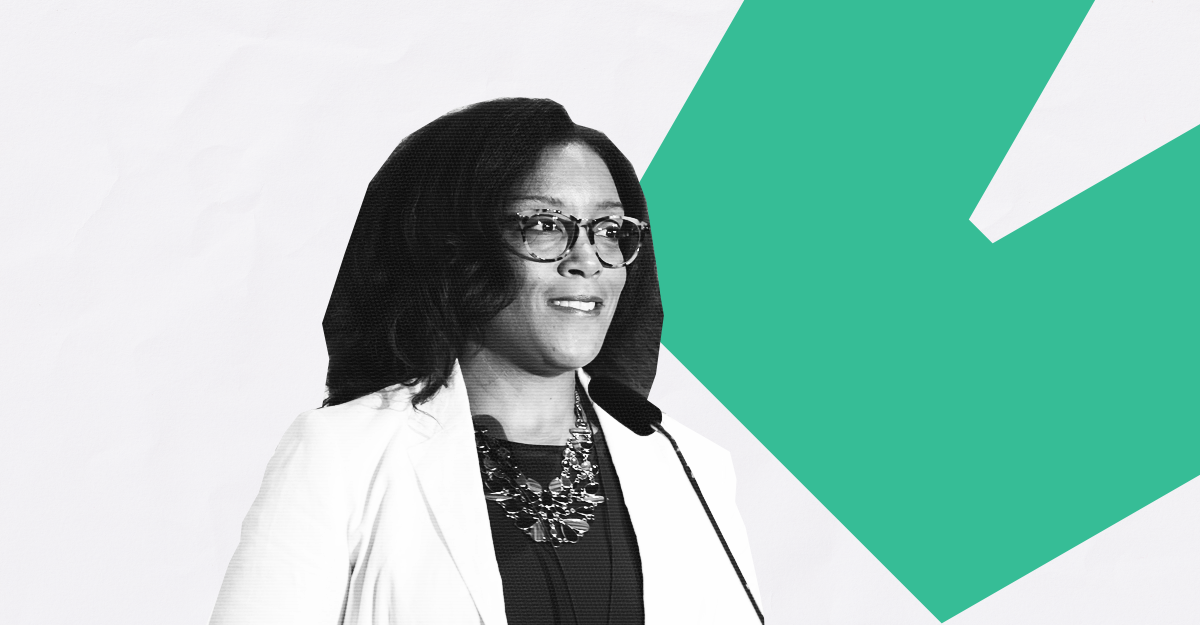
Building a Digital Justice Framework: FAS Policy Entrepreneur Fellow Monica Sanders
What is policy entrepreneurship? It is the practice of recognizing a problem and proposing a solution through policy. It is central to our work at FAS and our Day One Project, which presents actionable plans to every presidential administration, ready for implementation starting on “day one.” Submit your policy ideas to one of our ongoing idea challenges.
Monica Sanders is a FAS policy entrepreneur fellow (PEF) originally from Louisiana. Her stellar career of service includes work as a lawyer, scholar, and founder of The Undivide Project. Undivide is an organization dedicated to the legal and policy changes needed to address the intersections between digital and climate equity. One Undivide initiative uses IoT (internet of things) to build climate resilience solutions in disaster-impacted communities. It was through this work that she originally connected with FAS.
Building a Digital Justice Framework
“Since I started my organization, I have been pondering this concept of digital justice and what it means in a world that is increasingly digitized and climate-impacted at the same time. Broadly, I decided that the components would be: democratized access to information, economic opportunity, and training for future and equitable access to resilience-building resources,” she explains.
This realization brought her to the FAS Day One Project, where she formalized her ideas into a policy memo titled Using A Digital Justice Framework To Improve Disaster Preparation And Response. In it she outlines both the needs for this framework in the context of climate-driven weather disasters, and proposes solutions for implementation.
The memo development process introduced Monica to scientists and technologists who agreed with her thesis and saw similar needs in the disaster-relief capacity of the government. The result was a second policy memo, jointly authored with Shefali Juneja Lakhina and Melanie Gall:, Increasing National Resilience Through An Open Disaster Data Initiative. It advocates for enhanced data-sharing across government to more quickly and effectively respond to emergencies.
“Green Jobs”: Ever-Growing Yet Invisible Classification
After joining as an FAS Fellow, Monica continued her digital justice work with a focus on “green” technology-focused jobs and opportunities. While “green jobs” are an ever-expanding growth area, the government’s official “green jobs” classification in the Bureau Labor Statistics (BLS) was frozen after 2013. In effect, she argues, these jobs are invisible.
The classification needs updating, she says, to include a broader range of federal jobs that are essential to fighting climate change and which are evolving rapidly with the advent of technology. Updating BLS job classification is crucial for measuring effectiveness of government programs to deploy job opportunities more equitably across the country. Though BLS is largely known for publishing the unemployment numbers, the agency is doing a lot of work critical to fighting climate change.
“These are important to resource allocations at the state and local level and to send signals about the contours of certain jobs and industries to stakeholders outside of government,” she explains. She details why updating the BLS to define “green” and “tech” jobs are necessary to deploy job opportunities at scale in Revitalizing Federal Jobs Data: Unleashing the Potential of Emerging Roles.
Policy Entrepreneurship a Path to Change
Monica’s work as a PEF involves a lot of research and outreach. “For me, two of the most important aspects of the fellowship were the engagement and learning opportunities. I had never thought about policy in an entrepreneurial way, nor had a deep dive into how to manage some of these nuanced relationships. I worked in the legislature, but my role was mainly about looking at the constitutionality and legality of certain issues, not in designing interdisciplinary and inter- and intra-governmental initiatives.”
She encourages people to consider policy entrepreneurship as a path to change.
“Litigation can take years if an issue even makes it to court. Administrative orders and rulemaking are often retroactive — meaning the solution comes after a harm has happened. With policy entrepreneurship there is an opportunity to 1) be proactive, and 2) make an impact in a reasonable amount of time. Given the number of existential crises we must collectively confront, I have found policy entrepreneurship to be a fruitful avenue towards doing some of that work.”
We sit on the verge of another Presidential election – an opportunity for meaningful, science-based policy innovations that can appeal to lawmakers on both sides of the aisle.
Outdated Bureau of Labor Statistics classifications hampers the federal government’s ability to design and implement effective policies for emerging technologies sectors.